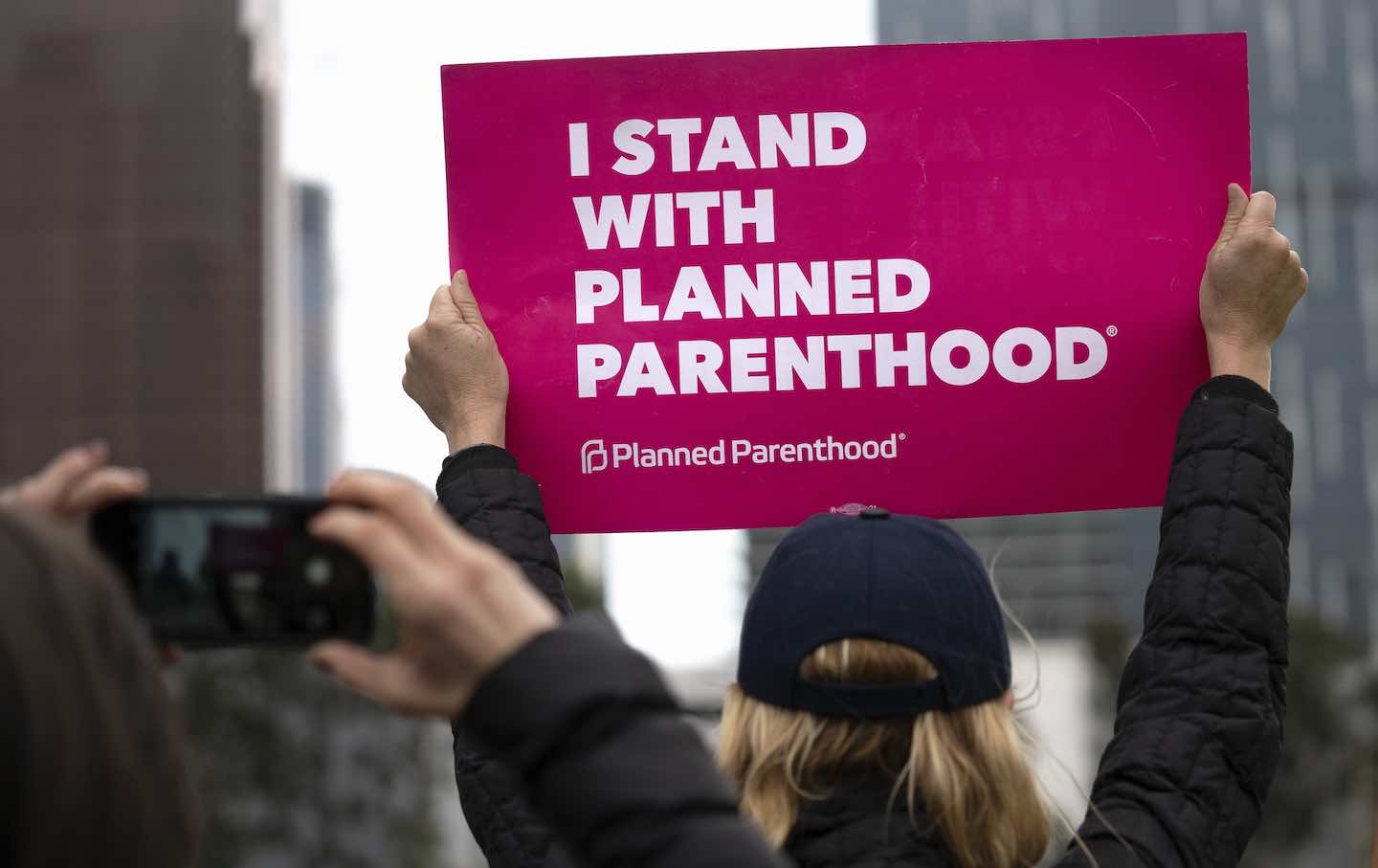The Planned Parenthood defunding campaign is back and headed to the US Supreme Court.

Elon Musk and Vivek Ramaswamy, tasked with leading Trump’s new Department of Government Efficiency, recently vowed to cut federal funding to “progressive groups like Planned Parenthood.” This may seem like one of the consequences of the election: groups and causes fall out of favor with the new administration. But their reference to defunding Planned Parenthood is misleading. This statement is the basis for a long-standing campaign to suggest that federal dollars mostly pay for state abortions, which they do not, and that Planned Parenthood clinics are the unique beneficiaries of federal programs, which they are not.
Meanwhile, the U.S. Supreme Court has agreed to hear arguments on whether South Carolina can deny Medicaid reimbursement to Planned Parenthood for non-abortion services. In fact, in 2023, South Carolina banned abortions after about six weeks of pregnancy, except in narrow circumstances.
Depriving Planned Parenthood clinics of federal funding is discriminatory because it treats the organization differently than others that provide the same services; more urgently, it threatens to deny health services to those who need them most. Health care in our country is for the most part not seen as a right, but as a privilege, available only to those who can afford it. Any cut in funding to clinics that provide a wide range of care, from contraceptives to prenatal care, will deepen these disparities. The harm to reproductive care for low-income Americans is already evident in states that have blocked Planned Parenthood from participating in Medicaid.
South Carolina tried to exclude Planned Parenthood from Medicaid since 2018, long before the Supreme Court overturned Roe v. Wade. South Carolina’s governor has deemed abortion clinics “ineligible” for reproductive health reimbursement from Medicaid, ending a wave of defunding that began several years ago. One outcome of the upcoming Supreme Court case could be that South Carolina — along with Texas, Arkansas, Missouri, Mississippi and other states seeking to limit access to reproductive care — could bar Planned Parenthood clinics from seeking Medicaid reimbursement for such services , like cancer screening , birth control, annual exams, referrals for infertility treatment, mental health support, testing and treatment sexually transmitted infections, adoption information, and prenatal and postnatal services.
Nationally, 16 million women of reproductive age rely on Medicaid; in South Carolina, nearly 50 percent of all mothers rely on the program. The organization estimates that one in five women in the United States will visit a Planned Parenthood clinic at least once for medical care. A direct consequence of allowing states to keep Planned Parenthood out of Medicaid would be closing clinics or preventing new facilities from opening, and the providers that serve them would leave. Longer-term impacts will threaten people’s health and their ability to thrive and, in some cases, survive.
Defunding Planned Parenthood would limit access to contraception, which is increasingly important to preventing unintended pregnancy in states like South Carolina, where abortion is largely illegal. At the end of 2022, 50 percent of pregnant South Carolina residents reported that their pregnancy was unplanned. Longitudinal studies show that unintended pregnancies, even when they result in healthy births, burden people with increased debt and stress, missed educational and employment opportunities, mental health problems, and reduced care for the children they raise. These are problems that access to affordable birth control can blunt.
When people give birth, they will face a decimated landscape of prenatal and postnatal care, with services once offered by Planned Parenthood limited or absent. Much of the United States is currently a maternal health desert, especially in the South and Midwest. As these deserts expand, maternal and child morbidity and mortality—women and children suffering from health complications or dying during (or after) childbirth—will rise. This is not an exaggeration. Evidence of such trends emerged in Texas after the state previously banned nearly all abortions roe deer was canceled. While birth rates have increased, access to maternal health care has not, and mothers and newborns have paid the price.
Medicaid is an invaluable resource for low-income people, including pregnant women and children, who need preventive health care, often time-sensitive. If states like South Carolina can cut off service because lawmakers don’t like a provider, an already strained system will be put under even greater strain. And lawmakers may not stop at Planned Parenthood. Defunding Planned Parenthood could embolden an administration that has declared its intention to treat health care as a luxury rather than a right, while allowing state lawmakers who claim to be pro-life to enact policies that do the opposite.


